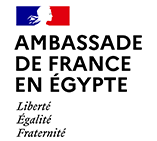Funding from research centers and public bodies (doctoral and post-doctoral)
In France, public research is split among higher education establishments and public bodies, such as the CNRS (Centre national de recherche scientifique – French National Center for Scientific Research) covering all areas of research, the IRD (Institut pour la recherche et le développement – Institute for Research and Development), the ADEME (Agence de l’environnement et de la maîtrise de l’énergie – Environment and Energy Management Agency) or the IFREMER (Institut français de recherche pour l’exploitation de la mer -French Research Institute for Sea Exploration).
In partnership with administrative regions, these public bodies fund research grants for doctoral or post-doctoral students.




